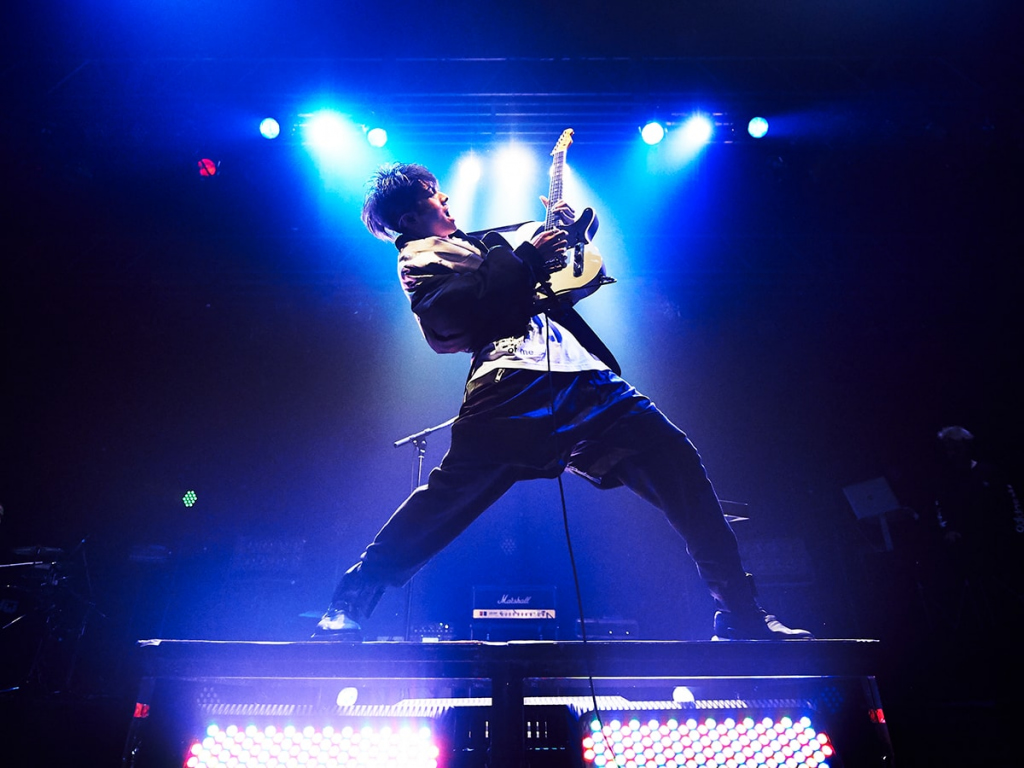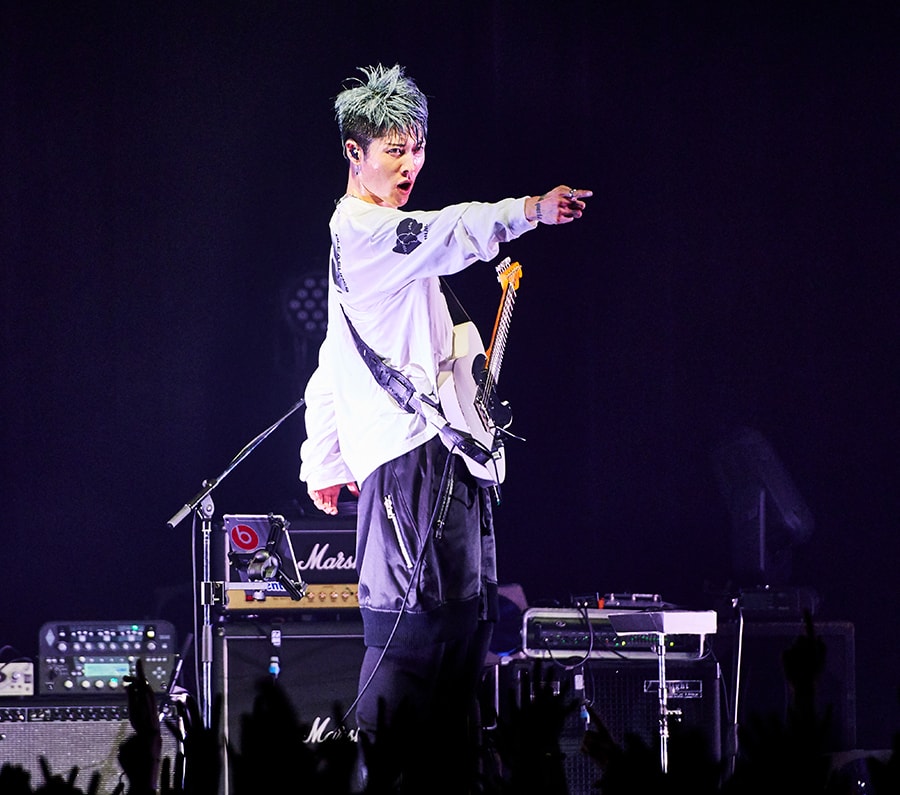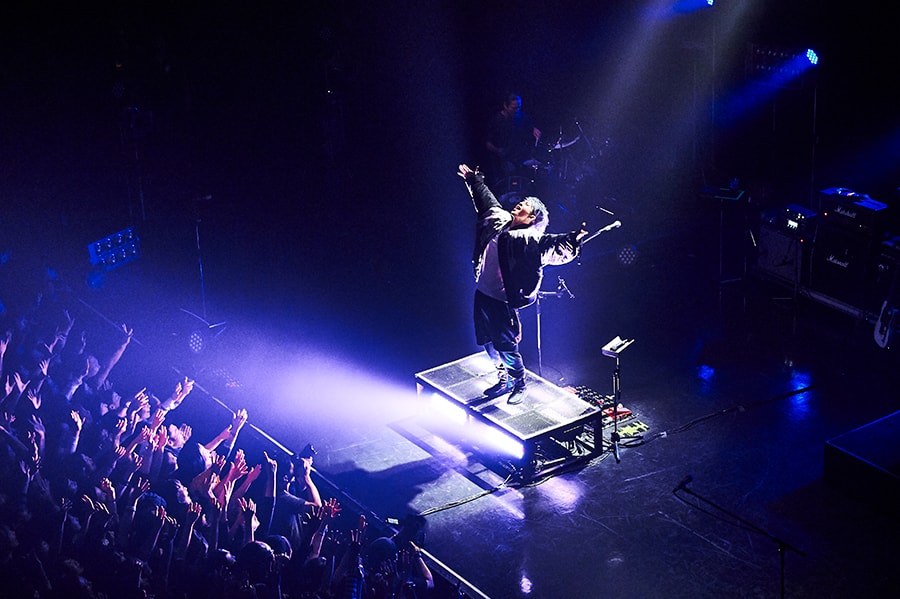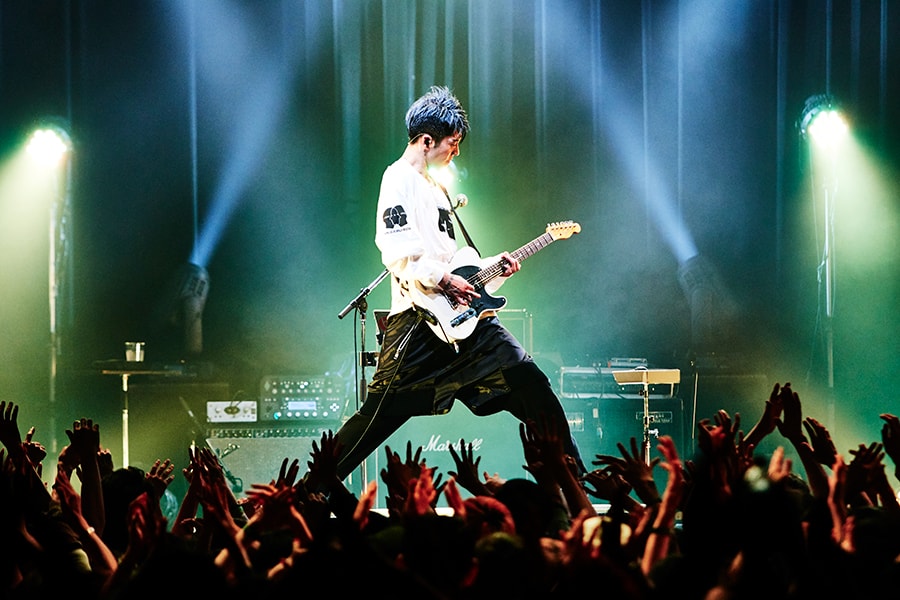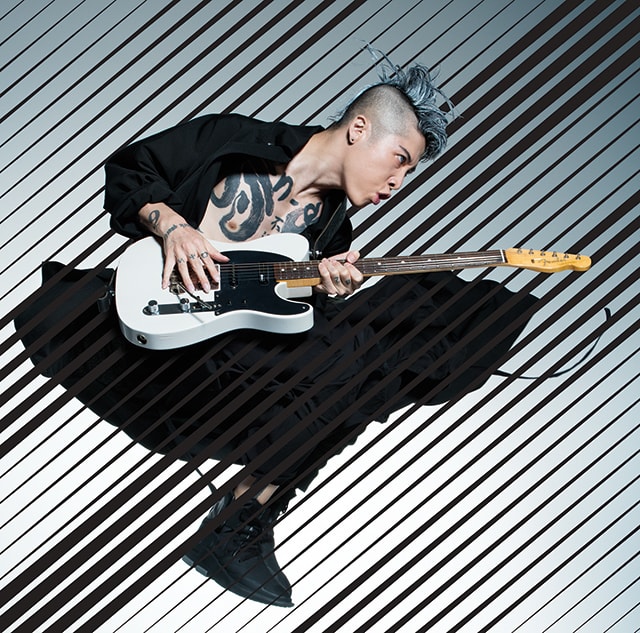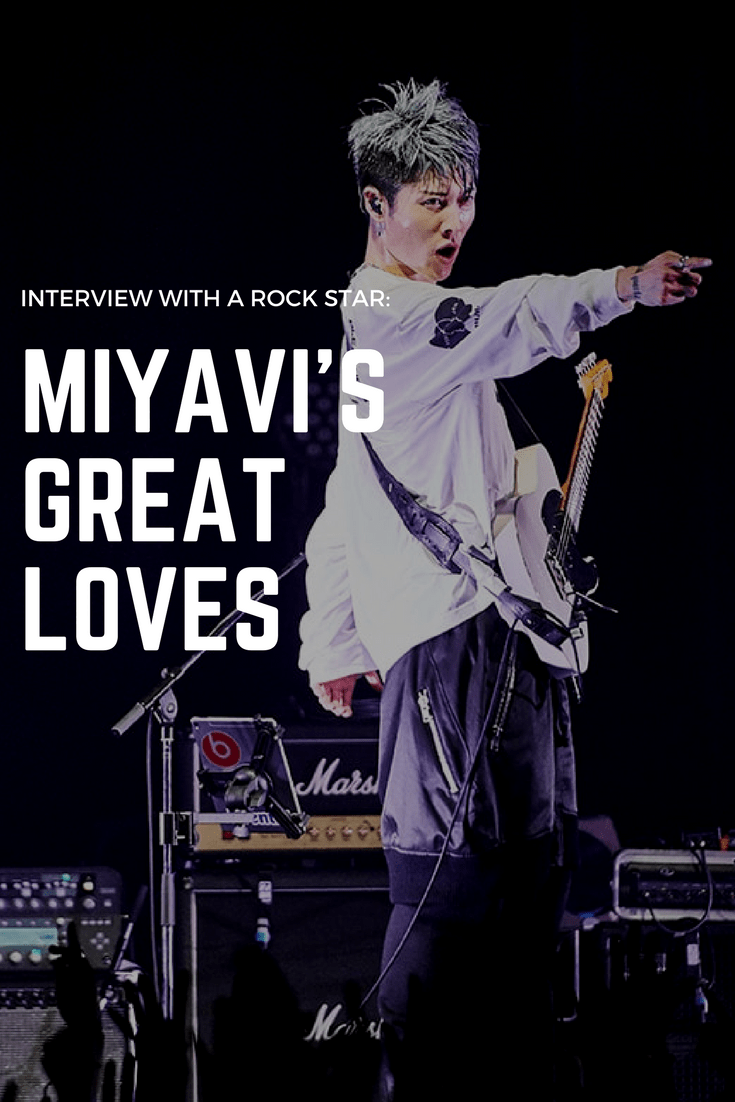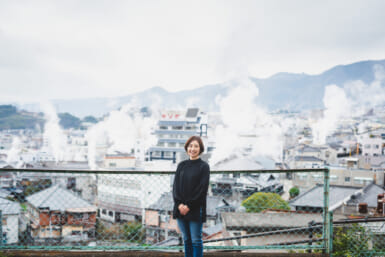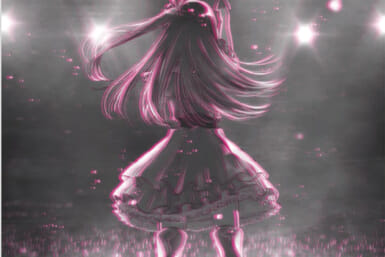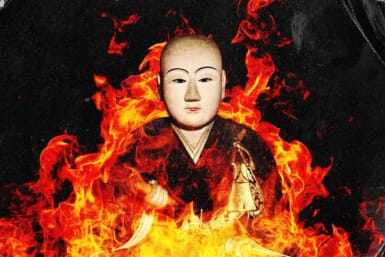The world-renowned artist talks to Weekender about his love for music, his family, and humanitarian activities.
Multi-talented artist MIYAVI just keeps adding to his already impressive resumé. Already an accomplished musician and actor (remember him in Angelina Jolie’s 2014 Unbroken?), he now adds UNHCR Goodwill Ambassador to the list – in November 2017 he became the first Japanese person to be awarded this honor. Currently busy recording in Los Angeles before returning to Japan for his upcoming tour in March, he made time for a Skype chat with Weekender in between back-to-back meetings. With love on our minds this month, we picked his brain about what the word means to him, and what it’s worth in this ever-changing world…
What does the word love mean to you?
It’s life. ’Cause to me, as a musician creating stuff, and now as a goodwill ambassador for UNHCR, I’m trying to find a deeper meaning for my creations. To unite people beyond boundaries or language differences, different colors and kin – that’s the beauty and power of music. That’s my mission with music, which is also a part of love. I always say music cannot change the world, or the future cannot be changed by music, but music can change people. And then people change the world. It’s my role to do the right thing through my music. It’s meaningful and important to me to keep doing that.
When I’m playing on stage, there is no conflict or war in the crowd, just people enjoying music. They unite. I always feel love – and that’s what connects people. That’s what I’m doing with my music and that’s what I think love is.
Also, I have my family. To meet my partner and to meet my kids; that’s the journey of my life. I was looking for them. I really believe that your partner used to be part of you and that you are one soul. Then you’re born physically, and separated, and then to meet your soul again is your journey in life. That’s love to me.
Also, about love, there’s an interesting story from when I went to Thailand [MIYAVI met Karen refugees from Myanmar there in March 2017], I met a Buddhist monk [Venerable V. Vajiramedhi]. He’s an influential monk there, with his own village. Even the King of Thailand has visited him [to learn from him]. I wanted to ask him about love, because I was really curious. So, I asked him, “What is love?” And I asked him why he didn’t get married. He answered, “If I get married, I will start loving my family more than [I love] other people.” That was a really interesting answer. It’s a good thing to have a family, but he’s sacrificing that path to be a monk – he feels it’s not fair to others. It’s a shocking answer [for me].
How did you feel when you were awarded the UNHCR Goodwill Ambassadorship?
I was honored. On the morning of that day, I went to a shrine nearby and I cried. Receiving the ambassadorship also gave me more motivation. ’Cause what I do is still the same. I use my abilities – acting, music, passion – but [being an ambassador] requires more commitment and more determination, so there’s no turning back. I have to keep moving forward. And that’s why the entertainment culture has the power to influence in a different way – it’s something that politicians can’t do. It’s even something that activists can’t do. Musicians can do that part. That’s why I feel more responsible. Because although the image of the entertainment industry and humanitarian aid is different, it’s not separate. The more we do in a cool way, the more people will realize “that’s cool” and the younger generation will want to join us. I never imagined being an ambassador for the UNHCR as a rock star. I didn’t even know about [UNHCR] before I met Angie [Jolie]; I was inspired by her. But now, that’s rock to me – I play the acoustic guitar with kids. That’s how I rock the future. Because the kids are our hope, our future.
How do you think people can best help to guide refugee children?
At the refugee camps in Lebanon [in 2015] I was teaching 30 to 40 kids one at time how to play chords. But in the middle of the session, some of the kids started fighting and some started bleeding. The adults dismissed it, saying, “Oh, they’re just fighting,” but to me [I feel that] if they don’t get the right education, they’re going to make war and conflict in the future. And that’s the cause of them being refugees right now. It’s really important to me to guide them, especially philosophically: [teaching them] how to share, how to communicate, how to cooperate with other people.
How about your own children?
I have two daughters and I always see myself in them. I also learn from them. But I have to teach them to be independent while I support them. If my girls want to be like me, it’s fine. I’m sure they’re going to be better than me! That’s my responsibility as well. [The world] has to be better – not only for my kids, but for all of the next generation. They are our future.
What else have you learned by visiting refugee camps?
First, how strong [refugees] are. They are way stronger than us. It’s frustrating that their parents cannot work or even protect their kids. Kids are working and growing vegetables [to survive] instead of going to school. Even the UNHCR’s work is like trying to stop a bleeding wound with just a bandage. You’re stopping the bleeding, but it’s not the fundamental solution. You need to kill the virus or the fundamental issue, which is conflict in their countries. These are not natural disasters, they’re human disasters.
Any advice for people who might want to volunteer but don’t know where to start?
I found a way to communicate by encouraging people with my guitar. I found a way to be a part of it. The first time I visited a camp I was scared because I had no knowledge or experience with refugee crises, but when I went there with my guitar, the kids went crazy. Their eyes shone so bright. Now, I go to camps, and everyone else has their own role and [together] we make a human chain. I tell them what I witness and they get it. They work in their territories – we work in different worlds, but with same mission. I hope to spread information about these activities and their message to Japanese people as well. That’s my mission: to be a bridge between Japan and the whole world.
What’s next for you?
We’re going back to Paris, then to New York, where we’ll play at the United Nations Headquarters with Sonita Alizadeh, a female rapper from Afghanistan whose mother tried to sell her [as a child bride] for $9,000. We’re going to feature her on one of my tracks, which is cool.
MIYAVI’s new album, Samurai Sessions Vol. 2, is out now. His Japan Tour kicks off in Tokyo on March 5 at Liquidroom. For more information, visit myv382tokyo.com

